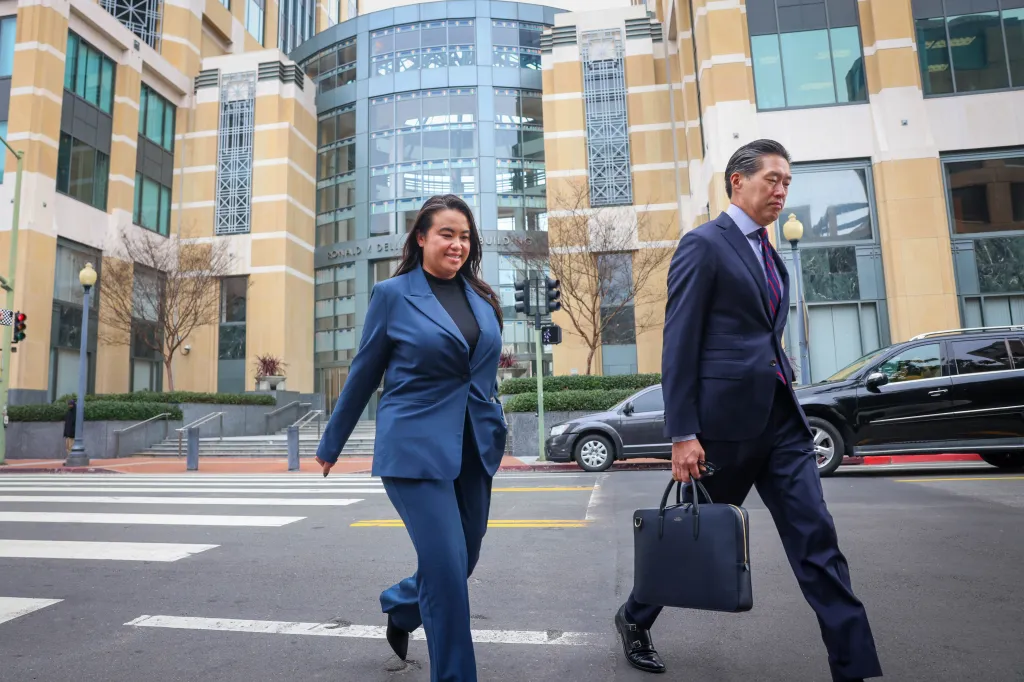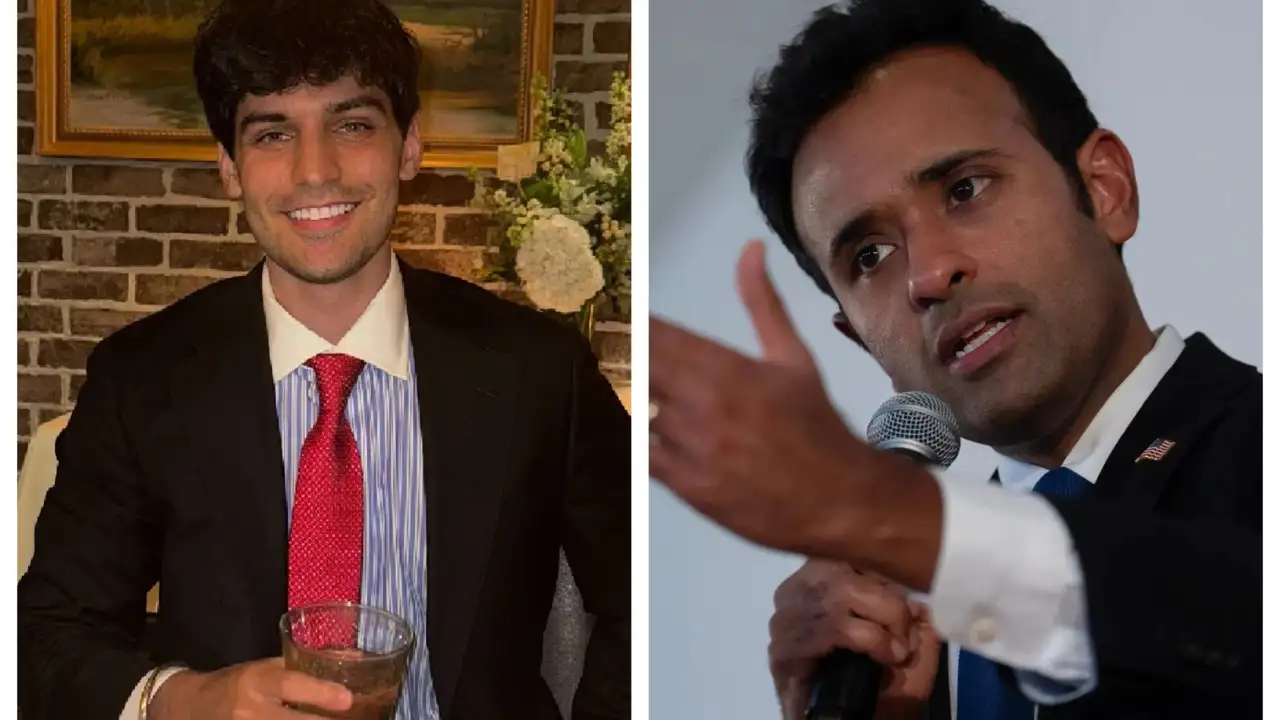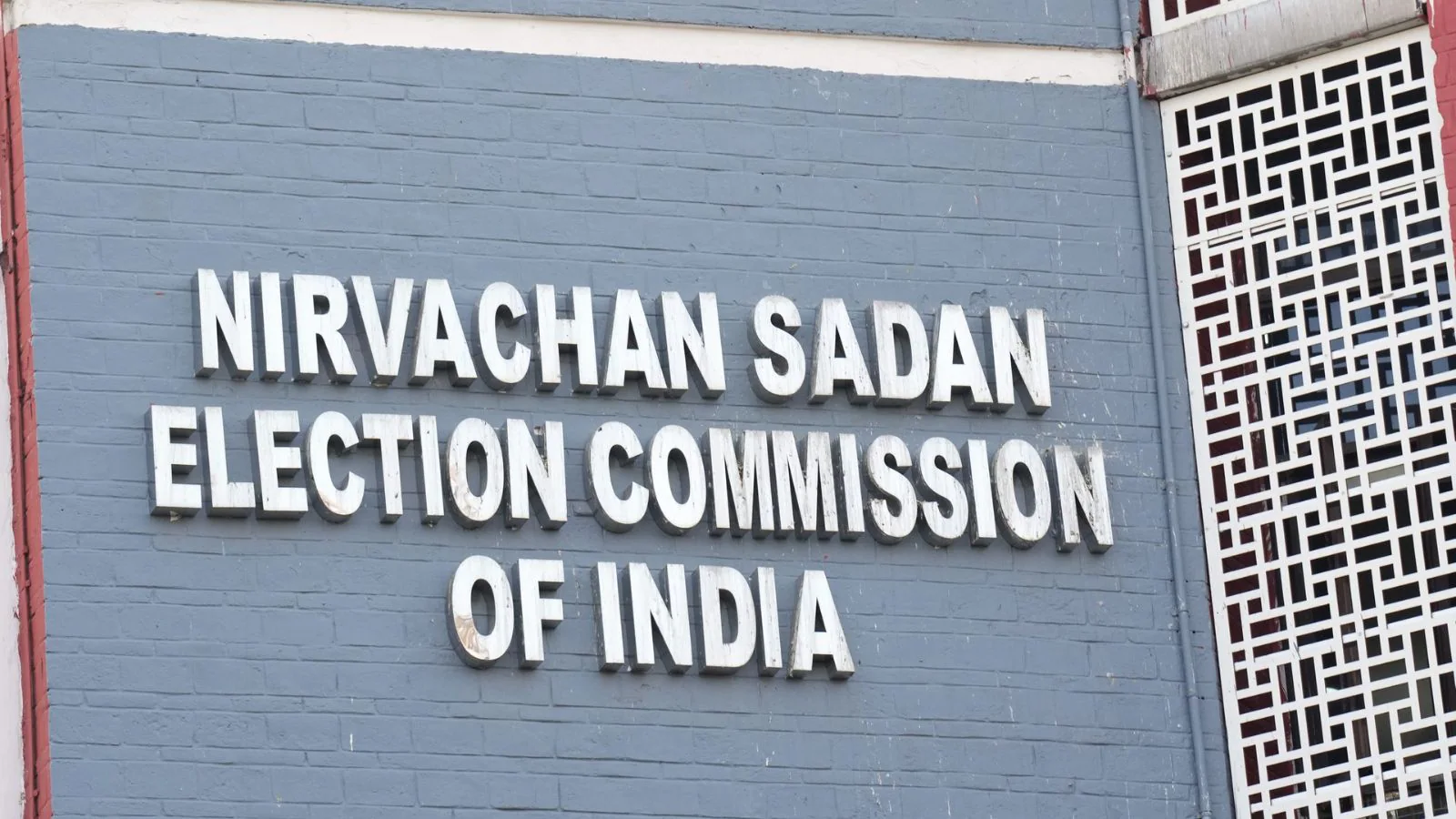Copyright The Mercury News

OAKLAND — Two former staffers in the Oakland mayor’s office claim they were wrongfully terminated in the spring, days before Barbara Lee was elected to the city’s top office. The officials were among the remaining staffers held over from ex-Mayor Sheng Thao’s administration, nearly all of whom were fired in sweeping fashion by the interim mayor at the time, City Councilmember Kevin Jenkins. In separate legal filings, former chief of staff Leigh Hanson and junior staffer Brandon Harami take aim at Jenkins’ conduct ahead of their terminations, lodging allegations that the council member refutes. Neither of their claims has been reviewed by the Oakland City Council, which could choose to either deny them — likely paving the way for lawsuits — or seek some kind of resolution. Harami, for his part, said he is preparing to file a lawsuit against the city in the coming weeks. The legal claims represent the latest loose ends from the Thao era, a particularly toxic chapter of Oakland’s politics in which city officials routinely accused each other of corruption and retaliation. Hanson and Harami were both close allies of Thao, who voters removed in the November 2024 election. Thao was subsequently charged by federal prosecutors in January with conspiracy and bribery, a case that remains ongoing. The two received significant attention — Hanson as a public face of the mayor’s office and Harami as a vocal, often combative social media presence in the run-up to Thao’s victory in the 2022 mayoral election. Neither legal filing mentions a high-profile scandal that emerged after thousands of Thao administration records were made public in the spring, leading Jenkins to quickly remove nearly all of the ex-mayor’s remaining staffers. In a private note released among those documents, Hanson appeared to allude to Black people as “tokens” — a description that sparked widespread public backlash, including from Oakland’s chapter of the NAACP, though Hanson insisted the intended meaning of her words had been taken out of context. Hanson’s legal filing, however, alleges her firing was actually the result of concerns she raised about Jenkins’ close relationship with representatives of a billboard company, Becker Boards, LLC, which signed a contract with the city earlier this year. She claims Jenkins in January had explored setting up a high-ranking Becker official, Nema Link, and a lobbyist hired by the company, Isaac Kos-Reid, with their own office space in the mayor’s suite at City Hall. Days later, she alleges, Jenkins accepted “gifts of wine and premium olive oil” from Link, which did not appear in a public disclosure he filed in April about potential conflicts of interest. Link, on the other hand, told this news organization the gift was only an inexpensive bottle of olive oil intended for Hanson, and not Jenkins. He and Kos-Reid flatly denied the notion they were ever offered office space at City Hall. “It’s an absurd and baseless claim,” Kos-Reid said in a statement, adding it was “sad but perhaps not surprising coming from a disgruntled and disgraced ex-chief of staff of an indicted mayor.” The Oakland City Council voted 6-0 in June to allow Becker to build five new billboards around town, a deal that was expected to bring the city $2.3 million in upfront revenue and annual $750,000 payments for the next three decades. Jenkins was not present for the vote. Hanson also accuses Jenkins of violating the city’s budget freeze by securing public money to cover his trips this year to Long Beach and Washington, D.C., against his chief of staff’s objections. Jenkins, who is now the council’s president, denied Hanson and Harami’s allegations leveled toward him. He inherited both staffers from Thao, and neither would likely have stayed with the city following the April 15 special mayoral election. In a statement, Jenkins called the claims “farcical and completely without merit,” saying the former staffers were “advancing baseless allegations in pursuit of payout” and “relying on falsehoods and mischaracterizations rather than facts.” “It is disappointing to see former employees attempt to weaponize fabricated narratives in an effort to squeeze funds from a city already working to recover from significant budget constraints,” he said. “Black leadership will not be used as a token or scapegoat to extract money from the people of Oakland.” Hanson referred questions from this news organization to her attorneys, who did not immediately respond. A character that overlaps in both Hanson’s and Harami’s legal claims is Seneca Scott, a former mayoral candidate who takes vitriolic aim at city officials on social media, where he posts about Oakland’s ills for a mostly conservative audience. Hanson said she was fired a day after she requested medical leave due to stress from one of Scott’s provocations — a threat he posted on X to come to the official’s home, according to her legal claim. “The Oakland Mayor’s Office left Ms. Hanson feeling unsupported in the face of vitriolic harassment and as she continued to raise concerns about unethical and illegal actions,” her filing states. Scott’s online crusades are central to Harami’s claim. The activist has posted a barrage of homophobic insults targeting Harami, who is openly gay, including an unsupported accusation that the former mayoral staffer was a pedophile. The city reached a court settlement with Scott in February after seeking a restraining order on Harami’s behalf, while a judge denied a similar request by Harami over the summer, the Oaklandside reported. Harami said the city failed to protect him from harassment, accusing Jenkins of wanting to negotiate a “peace treaty” between the two sides after meeting with Scott’s legal representation in late January. “Mr. Harami was shocked that the Mayor after seeing the blatant threats and harassment by Scott, would somehow suggest both parties were at fault and ‘peace’ needed to be reached,” the legal filing states. Jenkins told this news organization he never organized any such “peace treaty.” He shared a scathing, profanity-laden text message that Scott sent him in 2024 warning the council member to “never speak to me again.” Scott, a key figure in the political movement to recall Thao, declined to be interviewed. He has pulled papers to run in the 2026 mayoral election. Jenkins, meanwhile, would be up for re-election to a second council term to represent East Oakland next November. The council president’s political status rose during his stint as interim mayor, though earlier this year he refuted rumors about a run for state Assemblymember Mia Bonta’s seat in 2026. Shomik Mukherjee is a reporter covering Oakland. Call or text him at 510-905-5495 or email him at shomik@bayareanewsgroup.com.



